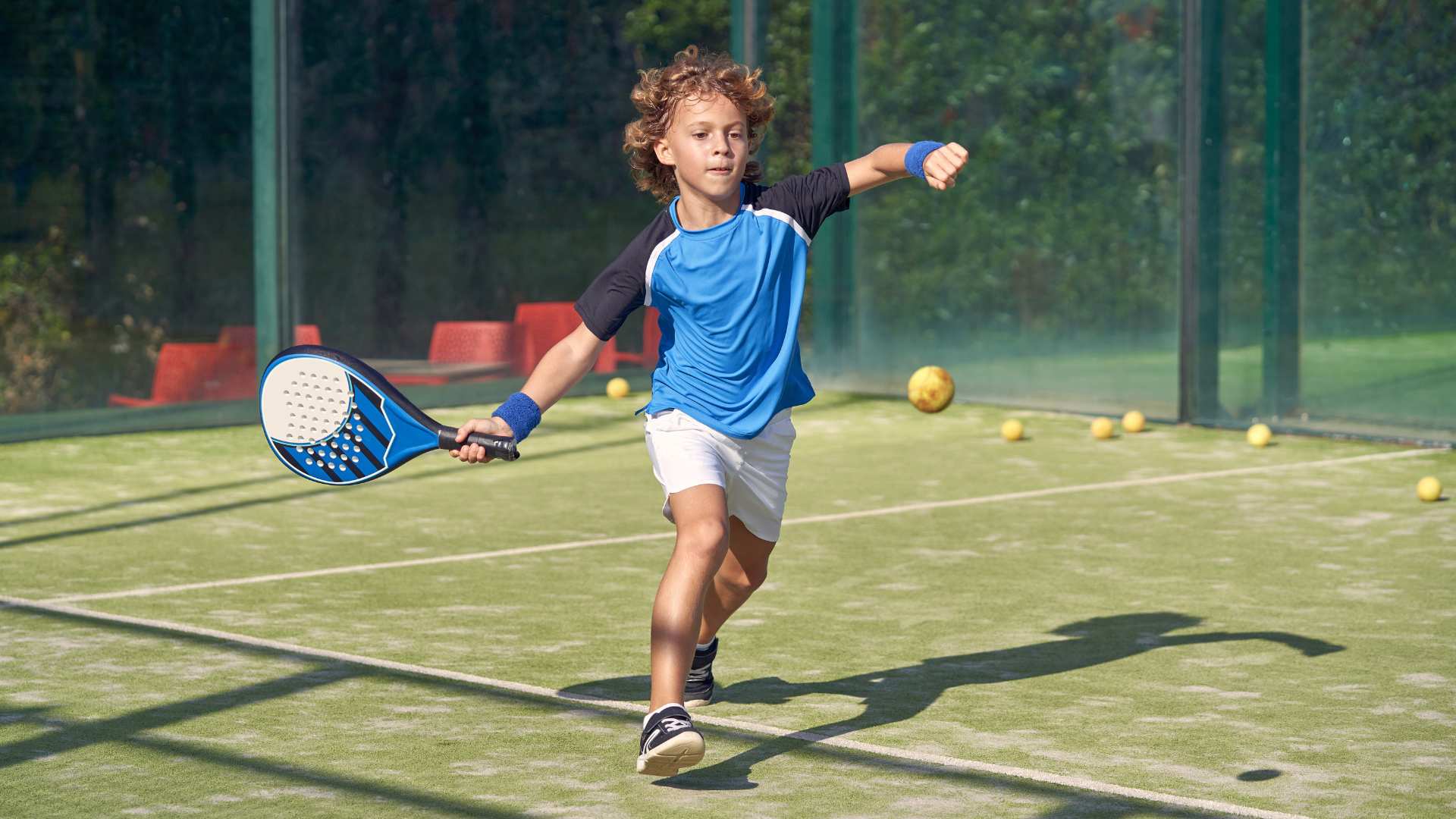Table of Contents
Are sports good for my child with autism?
One of the recommendations when visiting the doctor is to engage in regular physical activity, right? This suggestion applies to individuals of all ages because sport provides numerous benefits for our mental and physical health. Sports in autism make no difference, as despite being an activity with high sensory input, it offers the same and even more benefits for individuals diagnosed with Autism Spectrum Disorder (ASD).
If you are a parent or caregiver of a child with autism with challenges in motor skills or social interaction difficulties, you might wonder, “Are sports good for my child with autism?” it’s easy to feel that many activities, such as festivals, concerts, or sports, might not be suitable for our kids due to their heightened sensitivity and challenges in processing information and communication. However, with the growing acceptance and understanding of autism, more opportunities are becoming available for individuals on the spectrum to participate in various activities, including sports.
That’s why, at Texas ABA Centers, we want to assure you that sports also provide many advantages for individuals on the spectrum. Keep reading this blog to discover the most recommended sports for individuals with ASD and the autism-friendly organizations in Texas where your child can participate.
Unique Benefits of Sports in Autism

1. Physical Health Benefits
According to Clinical Neuroscience and Mental Health, participation in sports helps improve physical fitness, which is crucial for overall health. Regular physical activity promotes better cardiovascular health, muscle strength, and coordination. For children with autism, sports can also help develop gross motor skills and enhance body awareness, leading to improved balance and agility.
2. Social Interaction
Sports provide a structured environment where individuals with ASD can practice social skills in a supportive setting. Team sports, in particular, encourage communication, cooperation, and the development of friendships. These interactions can be instrumental in helping individuals with autism improve their ability to understand social cues and build meaningful relationships.
3. Behavioral Improvements
Regular participation in sports can lead to positive behavioral changes. Physical activity can reduce stereotypical behaviors and hyperactivity in individuals with autism. Engaging in sports can also provide a constructive outlet for energy, helping to decrease anxiety and improve focus and attention.
4. Emotional Well-being
Sports can significantly boost self-esteem and confidence in individuals with autism. Achieving goals, mastering new skills, and being part of a team can give individuals with autism a sense of accomplishment and belonging. These experiences can help build resilience and a positive self-image.
5. Sensory Benefits
Many individuals with autism have sensory processing challenges. Participating in sports can help them become more comfortable with different sensory inputs, such as touch, sound, and movement. This exposure, in a controlled and positive environment, can lead to better sensory regulation and increased tolerance for various stimuli.
6. Routine and Structure
Sports often involve regular practice schedules and rules, which can be beneficial for individuals who thrive on routine and predictability. The structured nature of sports provides a sense of security and helps develop time management and organizational skills.
Importance of Physical Activity for Individuals with Autism
Sports in autism is highly beneficial due to its profound impact on their overall development and integration into the community. Sports provide structured environments that can help individuals with autism develop essential life skills. These activities promote a sense of belonging and inclusivity, which is crucial for their social and emotional growth. With the increasing acceptance and understanding of autism, organizations are creating more opportunities for individuals on the spectrum to participate in sports, making it a valuable avenue for their holistic development.
Several sports are particularly beneficial for people with ASD. Swimming, for example, is a low-impact activity that can be calming and enjoyable. Martial arts, such as karate or judo, promote discipline, focus, and self-control. Gymnastics can enhance coordination and flexibility, while track and field activities offer opportunities for individual achievement.

Inclusive Programs in Texas
Ability Skateboarding and Action Sports
Ability Skateboarding offers inclusive skateboarding programs and clinics designed for individuals aged six and older, including those living with autism. They emphasize inclusivity by also providing programs for individuals without disabilities, promoting the idea that skateboarding is a sport for everyone.
YMCA of Greater San Antonio
Inclusive Sports is a collaborative program between Morgan’s Wonderland Sports and The YMCA of Greater San Antonio, aimed at providing inclusive sports opportunities for individuals with intellectual, physical, and developmental disabilities across various venues and leagues. Partnering with Morgan’s Wonderland, the YMCA offers fully inclusive baseball facilities at Mays Family YMCA Stone Oak and the new Morgan’s Wonderland Sports Complex, facilitating ongoing crossover competitions for children.
Kinetic Kids
As a leader in adaptive sports, fine arts, and educational programming, Kinetic Kids serves children with intellectual and physical challenges in San Antonio, Schertz, New Braunfels, Fort Worth, and Castroville. Their events include seasonal recreational programs and monthly competitive programs tailored to meet the diverse needs of Kinetic Kids. Whether overcoming challenges like autism, Down syndrome, or mobility aids, Kinetic Kids empowers participants to excel in various sports, including baseball, basketball, gymnastics, martial arts, and soccer, as well as dance, art, and more.
Adaptive Sports for Kids
Adaptive Sports for Kids (A.S.K.) is a non-profit organization dedicated to offering year-round sporting opportunities for children and young adults with physical and mental disabilities. A.S.K. provides inclusive programs in Tae Kwon Do, Baseball, Soccer, Bowling, Basketball, Fishing, and Fall Baseball.
Integrating Therapy Goals with Sports
Incorporating therapy goals into sports activities can significantly benefit children with autism by providing a holistic approach to their development. At Texas ABA Centers, our therapists seamlessly integrate play components into ABA therapy sessions to target essential areas such as motor skills, establishing routines, and improving communication.
This integration not only enhances physical abilities but also fosters social interaction and emotional regulation skills in a supportive and engaging environment. By combining therapy goals with sports, we empower children with autism to build confidence, develop critical life skills, and thrive both on and off the field.
We leverage children’s preferences and strengths to enhance positive skills and reduce challenging behaviors. Explore how families in Austin, Dallas, and Houston are enjoying the benefits of our proven therapy for children with autism. Contact us today at (877) 771-5725 or through our website to learn more.









